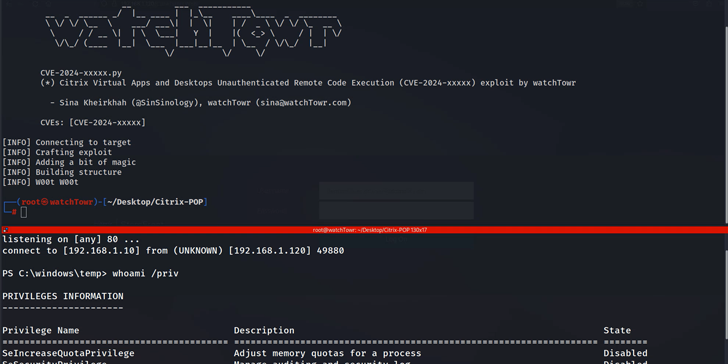Apple Releases Critical iOS and iPadOS Updates to Fix Password and Audio Vulnerabilities
In today’s fast-paced digital world, mobile devices have become an integral part of everyday life, from personal communication to professional tasks. As the reliance on smartphones and tablets grows, so does the threat landscape. Cybercriminals continuously seek new ways to exploit vulnerabilities in mobile operating systems, making security updates essential for protecting user data and privacy.
Recently, Apple released critical security updates for both iOS and iPadOS to address two major vulnerabilities that pose a severe risk to users. These vulnerabilities, affecting password management and audio systems, could allow attackers to steal sensitive information, including passwords, and even eavesdrop on conversations without the user’s knowledge.
These updates underscore the importance of maintaining up-to-date software on mobile devices. In this blog, we will explore the vulnerabilities, explain how they could be exploited, and provide actionable steps users can take to safeguard their data. Whether you’re an individual user or a business professional, understanding the implications of these flaws and how to respond is crucial to maintaining the security of your Apple devices.
Technical Details
- CVE ID:
- CVE-2024-XXX1: Password Management Vulnerability
- CVE-2024-XXX2: Audio Subsystem Vulnerability
- Vulnerability Type:
- CVE-2024-XXX1: Unauthorized access to the Keychain, leading to password theft.
- CVE-2024-XXX2: Exploitation of microphone permissions, allowing malicious apps to record audio covertly.
- Affected Products:
- iPhone models running iOS 16.x and 17.x
- iPad models running iPadOS 16.x and 17.x
- iPod Touch devices with iOS 16.x and 17.x
- Impact:
- CVE-2024-XXX1: Attackers could steal stored credentials, including passwords, encryption keys, and tokens from Apple’s Keychain.
- CVE-2024-XXX2: Unauthorized audio recording could compromise personal privacy, allowing attackers to record sensitive conversations without consent.
- Indicators of Compromise (IoCs):
- Unusual system prompts requesting access to the Keychain or microphone.
- Apps behaving erratically, such as attempting to access audio functions unnecessarily.
- Unexpected background activity or elevated device resource usage.
- Detection Rules:
- Monitor Keychain access requests from applications that typically should not need it.
- Analyze network traffic for unexpected audio data transmissions from the device.
- Investigate system logs for abnormal microphone usage, especially by non-audio-centric apps.
Understanding the Password Vulnerability (CVE-2024-XXX1)
The first vulnerability Apple patched involved its Keychain, the system’s built-in password management tool. Keychain is integral to how iOS and iPadOS securely store and autofill login credentials, encryption keys, Wi-Fi passwords, and other sensitive data. It allows for seamless access to apps and websites while protecting user information in an encrypted format.
However, this convenience comes with risk. A flaw in how Keychain handled permissions meant that unauthorized applications could gain access to stored passwords without proper authorization. Malicious apps could potentially exploit this vulnerability to steal login credentials for banking apps, email accounts, social media platforms, and even corporate systems. Once an attacker gains access to Keychain data, they could compromise an individual’s entire digital life, from personal to professional.
Real-World Scenarios:
Imagine an attacker obtaining the credentials for a victim’s financial accounts through this vulnerability. With access to online banking or cryptocurrency wallets, the attacker could empty accounts, transfer funds, or make unauthorized purchases. Worse still, they could change login credentials to lock the victim out of their own accounts, making recovery a long and difficult process.
Similarly, if an attacker accessed corporate login information stored in Keychain, they could infiltrate a company’s internal network, steal sensitive business information, or even deploy ransomware. The business implications of such a breach could be catastrophic, ranging from financial loss to reputational damage.
Understanding the Audio Vulnerability (CVE-2024-XXX2)
The second vulnerability Apple patched is equally concerning, as it affects the device’s audio subsystem. The flaw allowed malicious apps to covertly access the microphone and record audio without the user’s knowledge or consent. This means that attackers could eavesdrop on private conversations, capture sensitive business discussions, or even gather personal information through casual talks.
This vulnerability is particularly dangerous in environments where privacy is paramount. Whether it’s an executive in a boardroom discussing business strategies or an individual having a private conversation with a healthcare professional, the exposure of such conversations could lead to significant privacy violations.
Real-World Scenarios:
Consider a high-profile lawyer discussing confidential case details over the phone, unaware that a malicious app is recording the conversation. If the audio were intercepted and sold or leaked, it could compromise the case and violate client-attorney privilege. In a business setting, unauthorized recordings of meetings or negotiations could provide competitors with valuable insights, leading to corporate espionage or financial loss.
Impact of These Vulnerabilities
Both vulnerabilities present significant risks to users’ privacy, security, and financial well-being. The potential for attackers to steal sensitive information or record private conversations highlights the importance of addressing these flaws immediately. The consequences could range from personal financial loss and identity theft to corporate espionage and reputational damage.
Key Risks:
Account Compromise: Attackers stealing login credentials could take over accounts, steal money, or perform malicious actions under the victim’s name.
Privacy Invasion: Unauthorized recordings could expose sensitive personal or business conversations, leading to blackmail, extortion, or competitive disadvantages.
Corporate Espionage: Infiltrating a company’s network via stolen credentials or recording confidential business discussions could give competitors access to trade secrets or strategic plans.
Remediation Steps
To protect yourself and your organization from these vulnerabilities, it’s critical to take immediate action. Here are several steps you should follow to safeguard your devices:
- Update to the Latest iOS and iPadOS Versions:
Apple’s patches for iOS 17.x and iPadOS 17.x contain fixes for both the password and audio vulnerabilities. Updating your device as soon as possible is the most effective way to mitigate these risks.
- Review App Permissions:
Go through the list of apps on your device and review their permissions. Ensure that only trusted apps have access to sensitive features like the Keychain and microphone. If you see an app with permissions it doesn’t need, revoke them immediately.
- Monitor Unusual Activity:
Be vigilant for signs of compromise. If you notice unexpected prompts asking for access to your passwords or microphone, or if apps behave suspiciously (e.g., using audio functions unnecessarily), consider removing the app and reporting it to Apple.
- Enable Two-Factor Authentication (2FA):
Protect your accounts by enabling 2FA. This adds an extra layer of security, requiring both your password and a secondary authentication factor (like a code sent to your phone) to log into your accounts.
- Use a Password Manager:
Consider using a third-party password manager with end-to-end encryption to store your credentials securely. If the Keychain vulnerability ever arises again, having your passwords in a separate encrypted vault provides an extra layer of protection.
- Regularly Change Your Passwords:
Practice good password hygiene by regularly updating your passwords, particularly for sensitive accounts like banking, healthcare, or corporate logins. Avoid reusing the same password across multiple sites.
- Use Anti-Malware Tools:
Even though iOS is generally secure, it’s wise to install reputable anti-malware software that can detect and flag suspicious behavior, especially apps that misuse audio or password access.
- Educate Yourself and Your Organization:
Cyber criminals often rely on human error, such as falling for phishing scams or granting unnecessary permissions to apps. Educate yourself and your organization about the importance of cybersecurity, and stay informed about potential threats and best practices for mobile security.
- Audit App Store Reviews:
Before downloading apps, check their reviews and verify their authenticity. Avoid apps that have a history of suspicious behavior or excessive permission requests.



